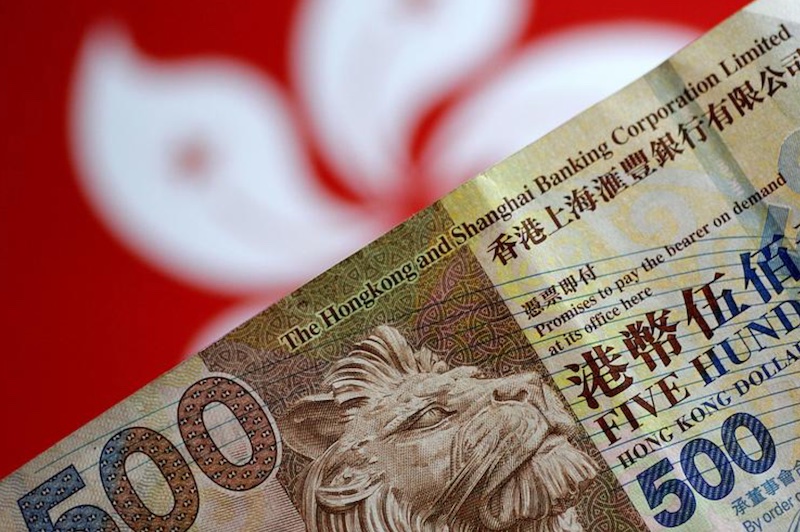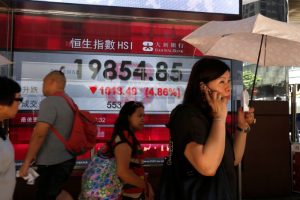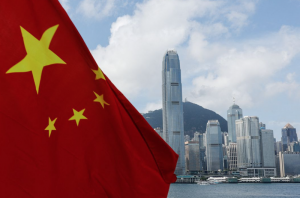The Hong Kong Monetary Authority (HKMA) on Thursday raised its base rate by 75 basis points to 2%, hours after the US Federal Reserve delivered a rate rise of the same margin.
Hong Kong’s monetary policy moves in lockstep with the US as the city’s currency is pegged to the greenback in a tight range of HK$7.75-7.85 per dollar.
The Fed raised its target interest rate by three-quarters of a percentage point, the most by the US central bank since 1994, as it seeks to tame red-hot inflation.
The base rate is the interest rate forming the foundation upon which the discount rates for repurchase transactions are computed by the HKMA.
It is set at either 50 basis points above the lower end of the prevailing target range for the US federal funds rate or the average of the five-day moving averages of the overnight and one-month Hong Kong Interbank Offered Rates (HIBOR), whichever is higher.
Following the 75-basis point rise in the US, 50 basis points above the lower end of the prevailing target range for the US federal funds rate is 2%, while the average of the five-day moving averages of the overnight and one-month HIBOR is 0.2%.
- George Russell
READ MORE:
Hong Kong’s New World Issues Social, Green US Dollar Bonds
HSBC Shuts Down Hong Kong-Based Trade Platform Serai
Hong Kong’s Babel Defies Crypto Rout With $80m Fundraising
























